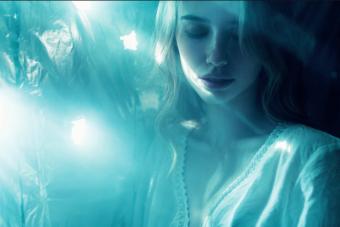
Demonology of nightmares and night terrors comes from medieval legends detailing that demons preyed on humans, generally at night. Demons would come upon the sleeping tormenting them for wicked purposes.
Origins of Demonology of Nightmares and Night Terrors
While secular and medical researchers continue to explore the meanings and causes of nightmares and night terrors, early Christian and medieval society attributed such dark dreams to demon possession, demon attacks, and other forms of demonic influence.
Among the demons commonly associated with nightly slumbering attacks were incubi and succubi. These demons were said to come and lay with women and men, respectively. The proof of such activity began with nightmares experienced and the presence of nocturnal emissions for men and unexplained pregnancy for women. Victims of these demonic attacks either had no other explanations for their circumstances or chose to use demons to explain their physical conditions.
A conference abstract for the International Association for the Study of Dreams offered the theory that nightmares and night terrors are self-shattering experiences in which the dreamer feels under threat. This perception of threat includes the earlier medieval explanations of demonic interactions.
Demonology and Dreams
A number of demons stand out as possible influences on people's dreams and nightmares.
The Incubus
The incubus was a male demon who would seek to have relations with women in their sleep in order to father children. Some legends describe the incubus visit as a torturous experience, filling the mind with indescribable terror similar to the modern day condition of night terrors.
The Succubus
The female version of the incubus, the succubus, is concerned with seducing men in their sleep. Nightmares coupled with nocturnal emissions fostered belief in these seductive demons.
The Mara
The modern day perception of nightmare conjures images of a black horse, but the etymology of the word refers to a night "mara," or demon. The Online Etymology Dictionary traces the origins of the word to the thirteenth century. The mara, an evil female spirit afflicting sleepers with suffocation was associated with a goblin or incubus who caused nightmares. The word appears to have become associated with bad dreams in the 19th century.
Phobetor
In Greek mythology, Phobetor, son of Hypnos (god of sleep), is the god of nightmares. He walked in dreams, a nightmarish figure, visiting fear on those who deserved it. The mythical god created fearsome monsters to protect the dream world to keep it safe from invasion by anyone but the gods.
Epiales
Epiales was a demon spirit known for nightmares. The Epiales may have been a part of the Oneiroi (dream spirits) that were the children of Nyx, the night. The Epiales means to lay upon, whether that means the nightmare was to be laid upon the dreamer or references incubi and succubi is unknown.
Night Terrors and Demonic Possession
A person suffering through a night terror may exhibit frightening behaviors. In the past, people in some parts of the world have related the behaviors to demonic possession. During a night terror, the dreamer may cry out, stare with open eyes, and may even seem to be awake. In the midst of a night terror, a person may scream, react physically and vocally, strike out. It is difficult to wake the person experiencing the night terror.
This difficulty to awaken or be "shaken out of it" can then leave a person confused and disoriented when they do wake. The sleeper may have no memory of the night terrors.
Understanding Fear
The belief that nightmares and night terrors are demonic events is not a valid theory in light of 20th and 21st century sleep disorder research. Still, the specific causes night terrors and nightmares remain unrealized as research continues. Researchers and scholars alike explore cultural beliefs such as the demonology of nightmares and night terrors in order to better understand the causes and effects of these sleep conditions.







